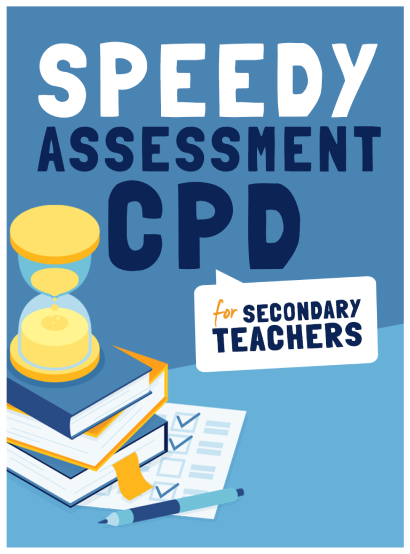GCSE Results Day 2018 – How Teachers Can Support Students

In a year of changes and greater uncertainty, we ask four heads what support teachers can offer children disappointed by their results…

- by Joe Carter

GCSE results day always comes with a degree of uncertainty for everyone involved. No matter how solidly students perform in their mocks, how closely the data is tracked, some surprises are inevitable.
The level of uncertainty is, however, higher in 2018 as 20 more subjects have moved over to the reformed 9-1 GCSEs – compared to last year when only English and maths had made the transition.
Acknowledging there will be a bedding-in process, Ofqual has offered reassurance that students will be treated fairly, with Cath Jadhav, Associate Director of Standards and Comparability at Ofqual, confirming that grade boundaries will be set to make sure those who are first to sit the new GCSEs will not be disadvantaged.
Or, as ASCL General Secretary Geoff Barton put it when we spoke to him about the 2018 tests, “What Ofqual has signalled on behalf of parents is that it’s not going to let children be guinea pigs in this, which is the right choice.”
Evidence of this in action came on Monday when it emerged that grade 3s would be awarded on the higher paper for the new double science GCSE – due to the number of students who would otherwise have failed to achieve the minimum grade this year. There have also been assurances that results will be comparable to previous years, so there is little danger that grades will take a sudden overall dip.
Despite this period of adjustment, the role of school staff will be largely unaltered on the day. There is, as you might expect from a profession used to frequent changes, a great deal of pragmatism from teachers and school leadership.
Speaking to Robert Campbell, CEO of the Morris Education Trust, about the changes this year, he agreed that the new GCSEs and all that has come with them has been challenging, but pointed out that the basic situation remains the same: “Results are results. There are students who do better than expected, students who perform as predicted, and students who don’t do so well.”
1 | Keeping doors open
Perhaps the most important role for a teacher on GCSE results day is to help students realise that, whatever their grades, there is life beyond exams.
As Kristian Still, headteacher at the Hindhead Campus, puts it, “It’s a comma, not a full stop. Recognise their successful investment and effort paying off, or where students don’t get the results they need now, reassure them that it doesn’t mean there won’t be other opportunities.”
At Hindhead, keeping as many doors open to students as possible starts with quality-first teaching, but if a poor set of results closes the way forward, it’s about helping children find new pathways to success.
“Going to college isn’t an end point,” says Kristian. “There are recovery programmes for maths and English, and there are plenty of students who study for three years, are very successful and get to fulfill their college aspirations and onto university, or into training and employment.”
Robert Campbell has a similar mindset. “There are so many routes students might take. It could be apprenticeships are still open and available; it may be they can look at a sixth form college that wasn’t their original choice, or find a different course. They might take a Level 2 BTEC and then convert to a level 3.
“For many students, GCSEs and A levels are the common currency, but actually the routes to formal, post-16 qualifications are varied. You might not get into a Russell Group university on a BTEC – though in theory you should be able to – but there are still many possibilities open and available.”
The ASCL’s Geoff Barton would like to see vocational qualifications – such as BTECs and Cambridge Nationals – get more attention, particularly on A level results day when there is a chance for them to be celebrated.
“As a gateway to university,” he says, “more people attend via that route than from A levels. We need more vocational courses, just as we need more apprenticeships so we can calibrate our education system for a broader range of skills and knowledge.”
2 | Enquiries about results
With schools getting GCSE results a day ahead of students, exam officers and headteachers have to work quickly to identify those papers that should be considered for remarking.
For teachers wanting to brush up on the procedures surrounding remarks, each of the exam boards has a run down of its Enquiries About Results (EAR) services, and there is this useful overview from the DfE.
Once schools have found which students are close to a grade boundary and whether any results appear anomalous, a request can then be made to follow up on one of two EAR options:
- a clerical check of things such as unmarked questions or a mistake in counting the total number of marks
- a post-results review of the original marking to ensure that the agreed mark scheme has been applied correctly (this also includes a clerical check)
The latter, advises Robert Campbell, is not something schools will automatically push for. “To use the parlance of a financial adviser, we have to warn students that the value of a remark can go down as well as up!”
This is because the process is carried out by a trained reviewer who has to decide whether the original mark could have been given by a marker who properly applied the mark scheme to the answer and exercised his or her academic judgement in a reasonable way. If not, the question is remarked – but it is possible that a lower mark will be applied as a result.
It’s a system that’s seen several changes in recent years. For instance, students now have to sign a consent form before a school can make a request for a paper to be remarked, and more changes are on the horizon.
As of 2020, marked GCSE scripts must be made available to schools before the deadline to request a review of marking (though some exam boards are already offering this service). Exam boards must also provide the reasons for any review of marking decisions automatically for the summer 2020 exam series onwards.
3 | Let the data settle
But beyond attending to the immediate issues raised by students who may need to change their plans, or identifying papers that should be sent for remarking, the day itself is not, says Stephen Tierney, Executive Director of the Blessed Edward Bamber Catholic Multi Academy Trust, a time for teachers to crunch data.
“Results analysis is best served cold,” he says.
“It can be difficult to look at your school’s results in the context of national data. If you’re a grammar school and all pupils have got above a level 4 or 5 that might be expected. But if your school is serving a massively disadvantaged area where a grammar school is taking a lot of the higher-attaining pupils at 11, you could produce what is actually a cracking set of results, but you won’t know immediately because progress data tends to come further down the line. On the day it’s about looking after the pupils and making sure they get to the right destination post-16.”
In most schools there are a small number of staff analysing the results on the day before they are announced, working to identify those students who are likely to be especially disappointed – since their results don’t open the way to studying at sixth form or on their course of choice.
“Those staff will be doing some preparatory work so they can watch out for those students when they come in, open their envelope and look bleakly downhearted,” says Geoff Barton. “That way someone is on hand to speak to them, perhaps call in their parents and, once they’ve calmed down, talk about their options.”
When schools have good relationships with the local sixth form they’ll also be keen to pick up the phone and discuss individual students. Kristian Still has worked at secondary schools and a sixth form college and so has experienced both sides of the conversation.
“At the college, if a student had missed out on a pass grade in maths and / or English, we’d look at their attainment across all their subjects and assess the benefit to them of progressing onto a Level 3 programme alongside a resit. While maths and English are the key drivers for a number subject areas and courses, you’ve got to be aware of their attainment in all their GCSE results. If, for instance, a child has attained a grade 3 in English but also high grades in humanities, or another essay-based subject, it’s something you’d want to investigate more closely.”
Ultimately, he says, you can only pass on the information then leave it down to the college, though a good relationship across the KS4/5 divide can be helpful when a school rings up to say a student who received a 3 in English was forecast a 7.
4 | Can we trust the results?
There seems to be a consensus that Ofqual and the exam boards are getting better in terms of accuracy and consistency when it comes to marking GCSE papers. “On both those fronts, I would feel more confident this year than in the past – even though there will always be errors in a system with so many exams” says Geoff Barton.
The marking systems are now organised in a way that leaves less margin for error, with papers uploaded and examiners only answering one or two questions. “There are sample questions thrown in as well,” says Stephen Tierney.
“The moderation procedures are working much better in terms of making sure pupils who are doing similar work are getting similar marks.”
5 | Dealing with an emotional day
Today’s (22 Aug) news from ASCL reports nine in 10 school and college leaders say reformed GCSEs have created greater levels of stress and anxiety among their students.
“I think the ongoing narrative about rigour, challenge and more difficult exams will lead to a greater sense of anxiety for students and teachers this year,” reflects ASCL General Secretary, Geoff Barton.
“The constant cranking up of expectations does seem to be a distraction from what the real issue is, which is what it must feel like after 11 years of being taught to get a grade 3 – when the national narrative is that’s not good enough. That’s a pretty inhumane approach.
“We need a system that allows children to show what they can do, that after 11 years gives children a certificate they can hold up to say they can do basic English and basic maths.”
But while staff do need to be mindful of the students who will struggle with their emotions, Geoff – like all the headteachers we spoke to – stressed that, by and large, GCSE results day is something to look forward to.
“As a head,” he recalls, “the most important thing we did was to make sure there were people around to celebrate with students. It can be a special day, a really positive moment in the rhythm of the school year.”
At Stephen Tierney’s trust, this is demonstrated by the many form tutors who will come in to be part of the occasion. “It’s their choice; they don’t have to come in,” he says.
“Because our form tutors roll-up, they will have been with some pupils for five years. Results day is all about that pastoral care system working its way through. There’s a moment of shared joy and some of that reflects, quite rightly, on the staff and the parents who have been with the child for so long. There is a danger we always look at the negative, but there are some great moments of celebration.”











